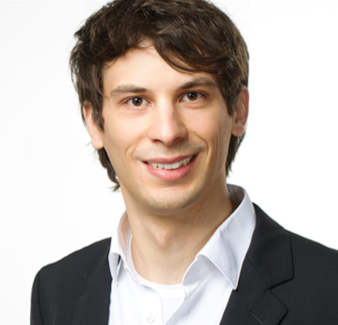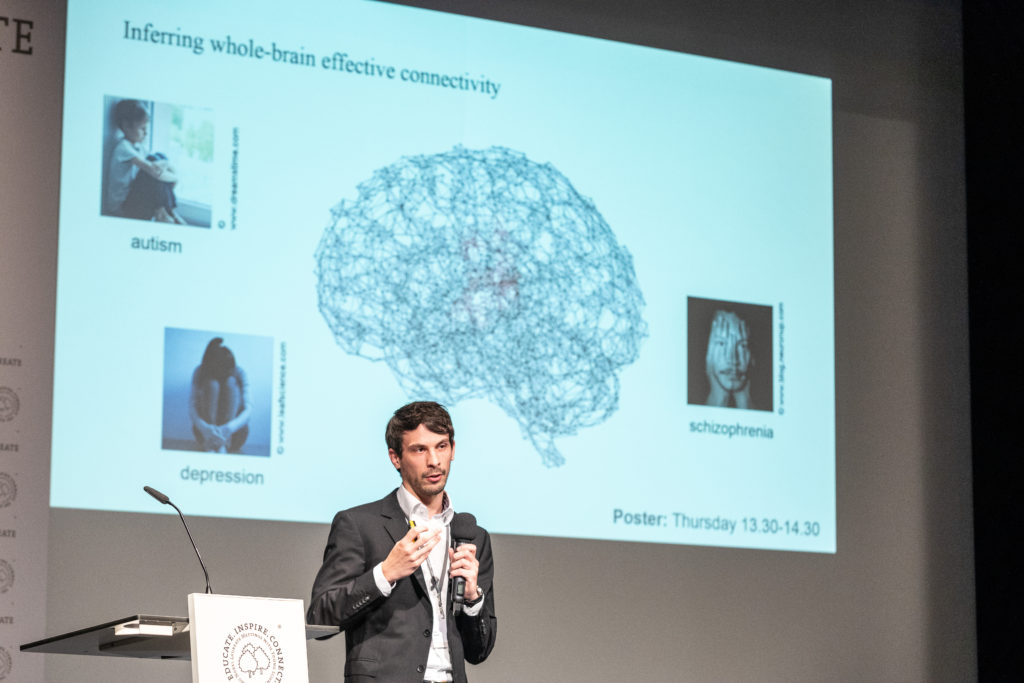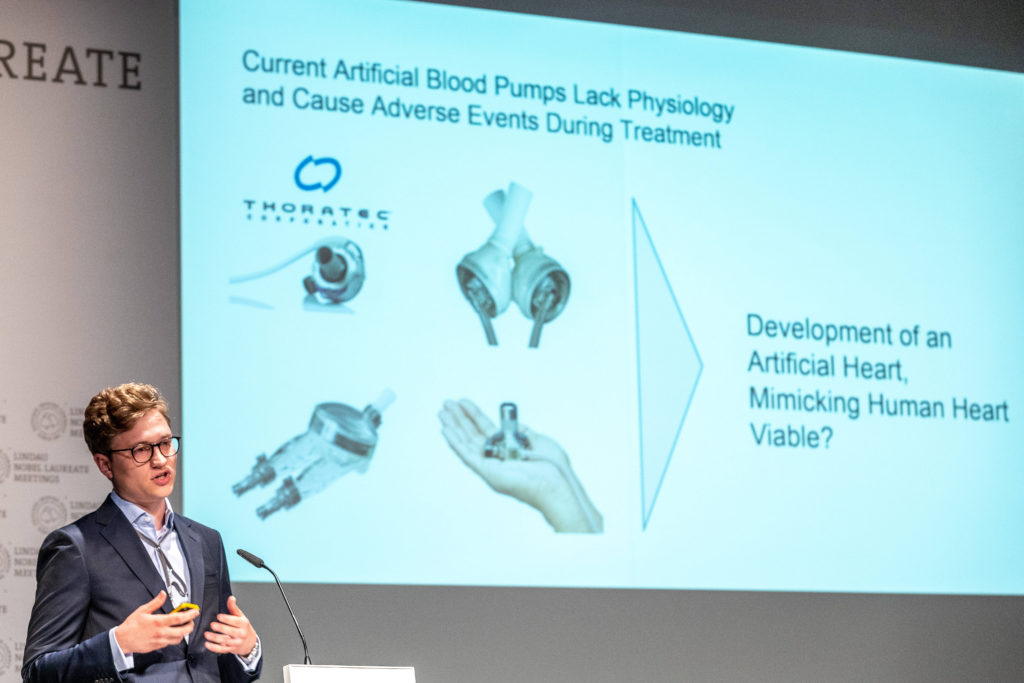This year’s 68th Lindau Nobel Laureate Meeting was dedicated to “Physiology and Medicine” and brought together 600 young scientists from 84 different countries at the beginning of their academic career and 39 Nobel Laureates for an entire week of insightful discussions about almost any aspect related to science. The meeting took place in the newly renovated and gorgeous Inselhalle on the beautiful island of Lindau on Lake Constance. Having been nominated by ETH Zurich, we, Nicholas Cohrs and Stefan Frässle, were fortunate to participate in this unique event.
Inside the Lindau Nobel Laureate Meeting
by Stefan Frässle & Nicholas Cohrs, 24.07.2018
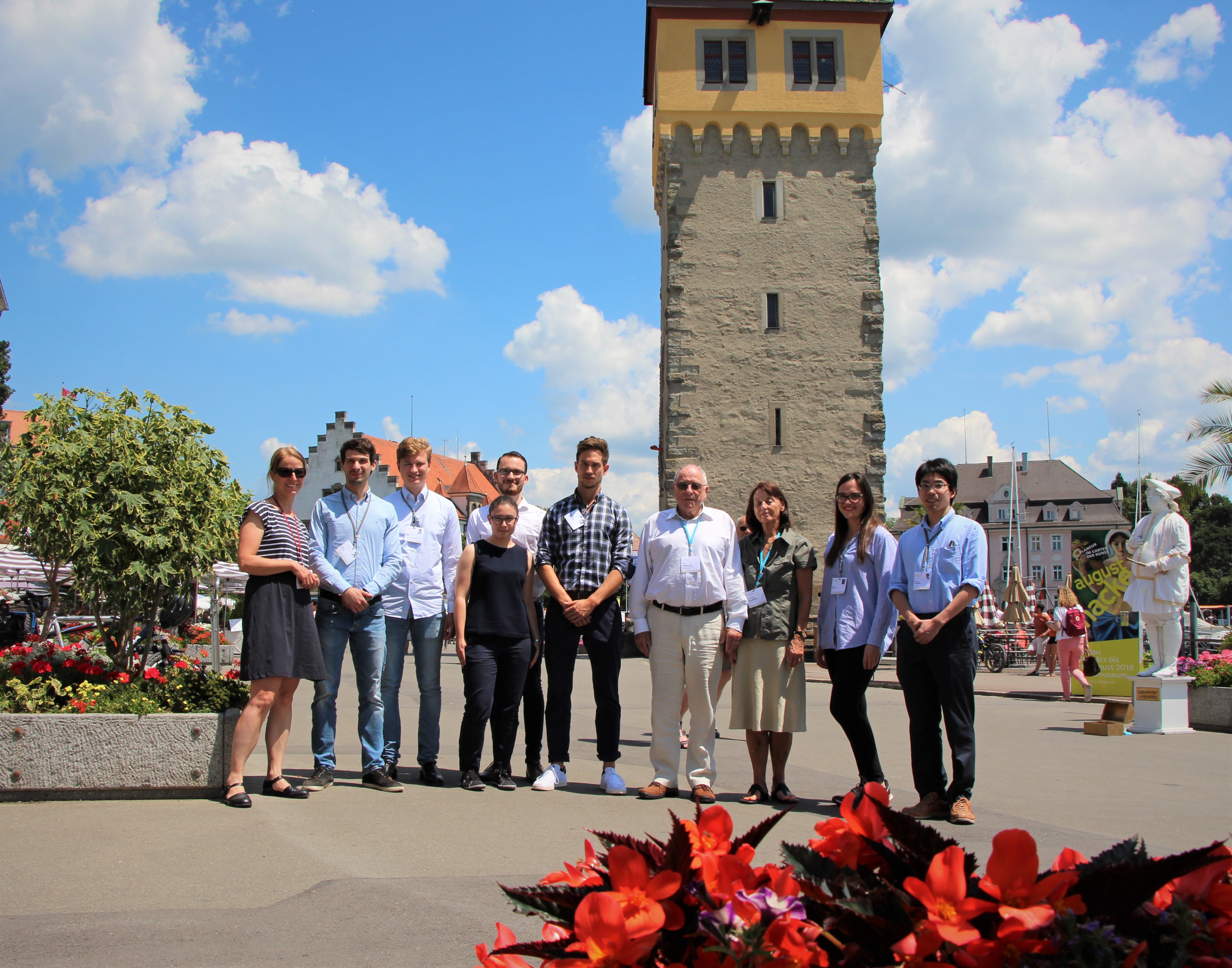
The ETH Zurich delegation with Prof. Kurt Wüthrich (photo credit: ETH Zurich)
During the opening ceremony of the meeting, Countess Bettina Bernadotte, president of the Council for the Lindau Nobel Laureate Meetings, highlighted at various occasions the slogan of the meeting “Educate, Inspire, Connect” and praised the “special atmosphere of the Lindau meetings”. We remember vividly sitting in the audience, excited and curious about the upcoming days; but also, somewhat uncertain as to whether the meeting could – for us personally – live up to these grand words and expectations. After all, the specific research fields of many laureates and young scientists seemed not closely related to the work that we are pursuing in our academic careers. Our fears were however soon put to rest as we began our “Lindau journey” and got to know the other attendees.
The interactions with the Nobel Laureates – whether in personal exchanges, during the daily lectures, at the newly established Agora sessions, or through the (sometimes fiery) panel discussions – were extremely insightful and engaging. During these interactions, we not only learned about the successes of the laureates that eventually led them to Stockholm and the Nobel Prize, but, more importantly, about the struggles and challenges that they had to face in order to follow their passion and realize their dreams. These personal stories were the most inspiring and motivating. The openness and friendliness of the laureates and their eagerness to answer all our questions about their careers, motivation and goals, was also striking. Besides the Nobel Laureates, our fellow young scientists were the people we spent the most time with throughout the conference, each with an idea more exciting than the next and an extremely pleasant personality. We are thankful for having had the chance to meet such wonderful, bright and enthusiastic colleagues.
We were both also selected to present our work on “A soft total artificial heart” and “Inferring whole-brain effective connectivity”, respectively, to the other young scientists and Nobel Laureates during the poster flashes and poster presentations. The discussions that unfolded over our projects were both engaging and helpful, providing us with critical advice and feedback to integrate into our work going forward.
Overall, the Lindau Nobel Laureate Meeting was one of the most inspiring and remarkable experiences of our scientific career so far and we are thus extremely grateful to the ETH Zurich (in particular Professor Günther and his staff) for having been nominated as attendees and providing us with this unique opportunity.
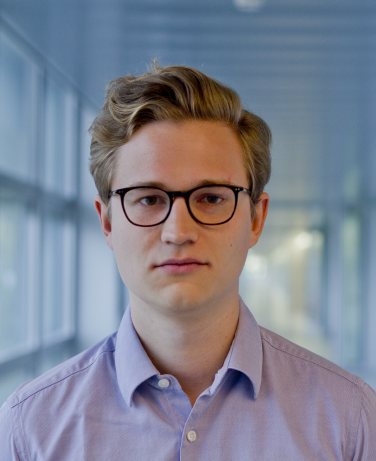
Nicholas Cohrs is a PhD student in the Functional Materials Laboratory, Institute for Chemical and Bioengineering, ETH Zurich, under the supervision of Professor Stark. His work concerns the development of a new concept for artificial hearts.
Dr. Stefan Frässle is a postdoctoral fellow at the Translational Neuromodeling Unit (TNU), Institute for Biomedical Engineering, University of Zurich & ETH Zurich. Before joining ETH Zurich in 2016, Stefan studied Physics at the University of Constance and the Philipps-University Marburg, and obtained his PhD at the Laboratory for Multimodal Neuroimaging (Marburg), including guest visits at Harvard University and ETH Zurich. He was awarded the Best Dissertation award for his PhD thesis and received the prestigious ETH Zurich Postdoctoral Fellowship for his postdoctoral training at the TNU.
Meet Stefan on Facebook and Twitter:
